Select Language
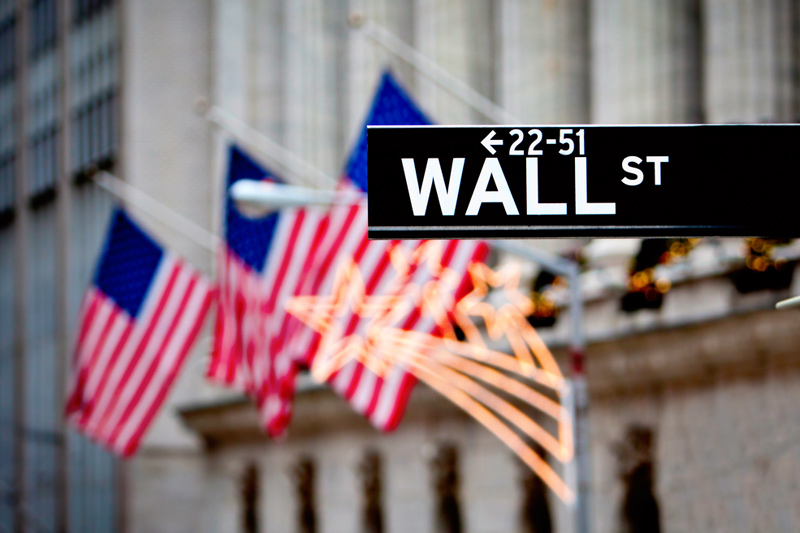
U.S. stock index futures steadied on Monday evening after the announcement of a U.S.-China trade deal sent Wall Street up sharply, with focus now on key upcoming inflation data for more economic cues.
S&P 500 Futures steadied at 5,865.25 points, while Nasdaq 100 Futures were flat at 20,942.0 points by 19:15 ET (23:15 GMT). Dow Jones Futures were flat at 42,508.0 points.
Wall Street gains cooled amid caution before key U.S. inflation data due later on Tuesday, given that the reading comes amid heightened fears over inflation remaining sticky for the coming months.
Wall St soars on US-China tariff relief
Futures steadied after Wall Street clocked stellar gains on Monday, as investors cheered a sharp deescalation in trade tensions between Washington and Beijing.
The U.S. will slash its 145% tariff rate on Beijing to 30%, while China will cut its retaliatory tariffs to 10% from 125%, both for a period of 90 days.
China also agreed to roll back non-tariff measures such as rare earth export controls.
The deal was announced in a rare joint statement by U.S. and Chinese officials, and came after high-level talks in Geneva, Switzerland, over the weekend.
The S&P 500 surged 3.3% to 5,844.17 points, while the NASDAQ Composite rose 4.4% to 18,708.34 points. The Dow Jones Industrial Average jumped 2.8% to 18,708.34 points.
Gains were broad-based, although major technology stocks rose sharply on hopes that major device makers such as Apple (NASDAQ:AAPL) will now face fewer trade-related disruptions.
Artificial intelligence-linked stocks- such as hyperscalers Microsoft (NASDAQ:MSFT) and Google (NASDAQ:GOOGL), and chipmakers Nvidia (NASDAQ:NVDA) and Broadcom- were encouraged by a BofA note that said capital spending on AI infrastructure was likely to remain strong this year and the next.
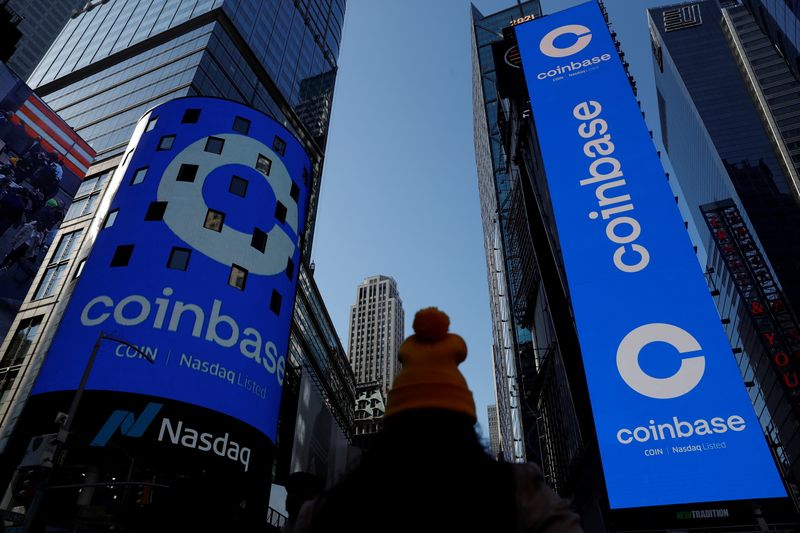
Shares of Coinbase Global (NASDAQ:COIN) surged on Monday evening as the top U.S. cryptocurrency exchange was set to join the S&P 500 index, replacing Discover Financial Services (NYSE:DFS).
The inclusion, effective May 19, marks a milestone for Coinbase, reflecting its growing prominence in the financial sector.
The move follows Capital One Financial (NYSE:COF) receiving approval for the acquisition of Discover, where the deal is expected to close on May 18.
Coinbase will be classified under the financials sector in the benchmark index, S&P Dow Jones Indices said in a statement.
Coinbase shares jumped more than 10% to $228.16 in extended trading. In regular trading, the stock gained nearly 4% on Monday.
Last week, the crypto exchange reported a drop in first-quarter profit, which also missed Street expectations.
The company had also announced that it would acquire crypto derivatives platform Deribit for $2.9 billion in cash and equity.
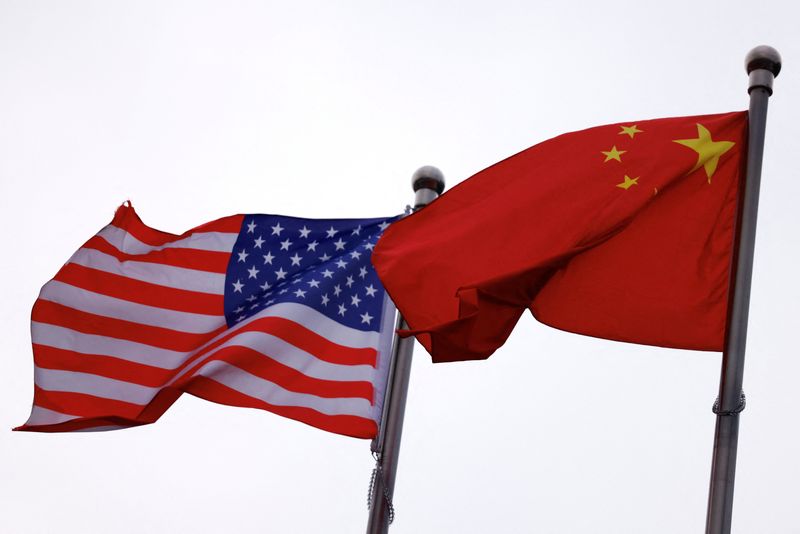
U.S. Treasury Secretary Scott Bessent said on Sunday that substantial progress has been made in the trade talks between the United States and China.
"I’m happy to report that we made substantial progress between the United States and China in the very important trade talks," Bessent said in a statement.
The discussions, aimed at defusing the ongoing trade war between the two countries, were held in Geneva and involved Bessent’s team and that of Chinese Vice Premier He Lifeng.
Bessent said that more details about the progress would be provided on Monday.
Jamieson Greer, the U.S. Trade Representative who was also present at the discussions, said that the differences between the two nations were not as significant as previously assumed.
"This was, as the Secretary pointed out, a very constructive two days," Greer stated. "It’s important to understand how quickly we were able to come to agreement, which reflects that perhaps the differences were not so large as maybe thought. That being said, there was a lot of groundwork that went into these two days."
"We’re confident that the deal we struck with our Chinese partners will help us to work toward resolving [the trade deficit]," Greer added.
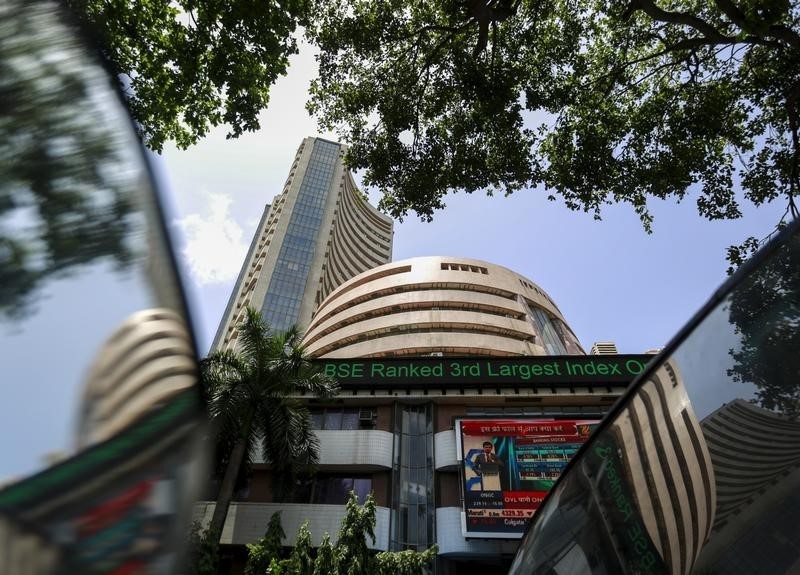
Indian stocks rose sharply in early trade on Monday as a U.S.-brokered ceasefire between New Delhi and Islamabad appeared to be holding, marking a deescalation in their recent armed conflict.
The Nifty 50 surged 2.8% to 24,692.90 points, while the BSE Sensex 30 rose 2.5% to 81,397.0 points by 09:57 AM IST (04:27 GMT).
The Nifty had fallen some 1.5% in the past three sessions, as India and Pakistan engaged in their worst fighting in nearly three decades. Tensions between the nuclear armed neighbors rose after India struck several alleged terrorist sites in Pakistan, in retaliation for a deadly attack in Indian Kashmir in April.
U.S. President Donald Trump announced over the weekend that Washington had brokered a ceasefire between India and Pakistan. While initial reports showed both New Delhi and Islamabad accusing each other of multiple violations, military action in Kashmir and along the Indo-Pak border was seen deescalating by Sunday.
Focus was now on whether the ceasefire will hold, and whether tensions will fall further between the two countries.
Two major points of contention are the Indus Water Treaty- which reports showed remained suspended despite the ceasefire- and a U.S. offer to broker negotiations over Kashmir, which was seen drawing discomfort from New Delhi.
India had pulled out of the Indus Waters Treaty in April, blocking the flow of key water sources into Pakistan.
In Indian stocks, while most sectors were positive, the Nifty Pharma index fell 0.8%, weighed chiefly by major stocks with large exposure to the United States. Losses in Asian drugmakers came after Trump said he will sign an executive order to slash U.S. drug prices.
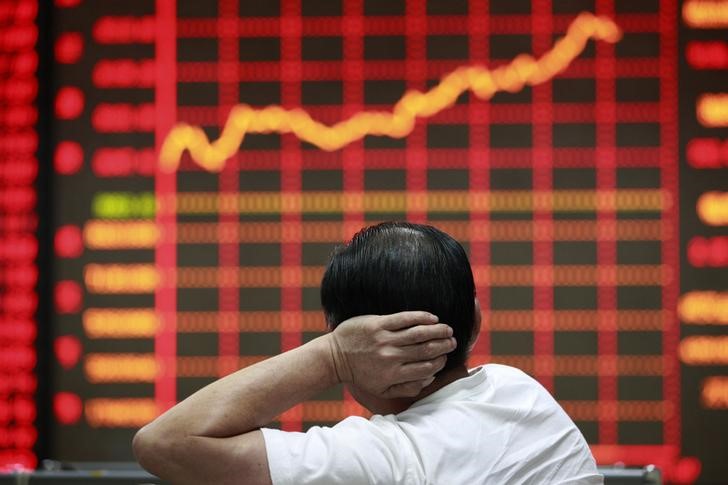
Asian stocks rose on Monday, with China in the lead after Beijing and Washington announced that they had reached a trade deal, while a ceasefire between India and Pakistan also primed the Nifty for strong gains.
U.S. stock index futures also rose sharply in Asian trade, with NQM25 up nearly 2% after Chinese and U.S. officials signaled on Sunday that a trade deal had been met, and that more details will be released later on Monday.
But gains in some indexes were held back by a drop in pharmaceutical stocks, after U.S. President Donald Trump said he will sign an executive order to slash U.S. drug prices.
Among major individual stocks, chipmaker TSMC (TW:2330) (NYSE:TSM) rose 1% in Taiwan trade after it posted record-high sales for April on Friday.
China stocks surge on US trade deal
China’s Shanghai Shenzhen CSI 300 and Shanghai Composite indexes added about 1.1% and 0.9%, respectively, while Hong Kong’s Hang Seng outperformed with a 1.5% jump.
U.S.officials said recent talks in Geneva, Switzerland, had gone well, and that a trade deal with China, to lower America’s trade deficit, had been reached.
Chinese officials also flagged welcome progress in the talks, and said that they will make a joint announcement with the U.S. later on Monday.
A potential trade deal marks a major deescalation in a bitter trade war between the world’s biggest economies, after they slapped trade tariffs of over 100% on each other in April.
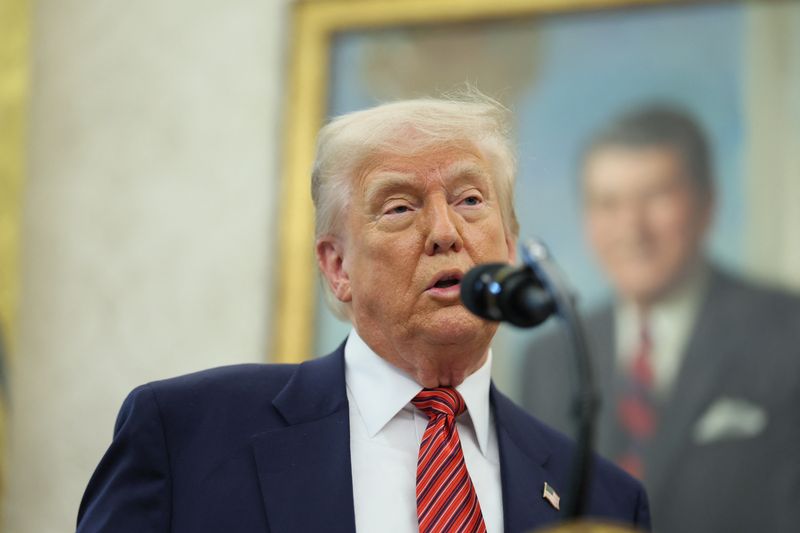
President Donald Trump announced on Sunday that he would sign an executive order Monday morning to slash U.S. prescription drug prices by aligning them with the lowest prices paid globally.
Posting on Truth Social, Trump criticized pharmaceutical companies for decades of inflated pricing. He said the U.S. has long paid far more for prescription medicines than peer countries, with some treatments costing five to ten times more despite being manufactured by the same companies in the same facilities.
“Prescription Drug and Pharmaceutical prices will be REDUCED, almost immediately, by 30% to 80%,” he wrote.
The order, Trump said, will implement a “Most Favored Nation” policy, compelling U.S. drug prices to match those of countries that pay the least for the same medications.
He claimed the move would save the country “TRILLIONS OF DOLLARS” and reduce healthcare costs for Americans by numbers never even considered.
Trump claimed that drug prices would increase across the globe to facilitate a decrease in U.S. prices, although he did not provide any details on how this would happen.
The U.S. President had in his first term also attempted to launch a drug pricing program based on international prices, although this was blocked by a court.
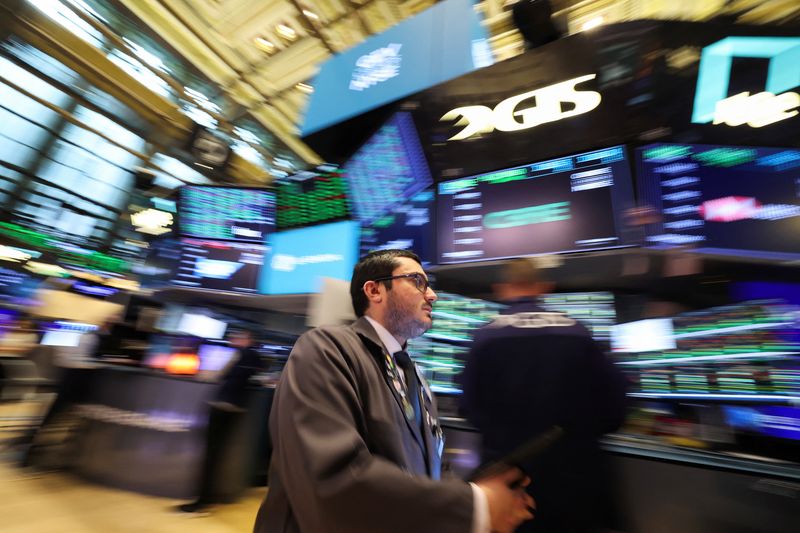
U.S. stock futures rose sharply on Sunday evening after the White House announced a trade deal with China had been reached following high-level meetings in Geneva this weekend, although no details of the agreement were released.
Dow futures were up 1% at 41,736.0 points, S&P 500 futures were up 1.2% at 5,745.0 points, and Nasdaq futures were up 1.5% at 30,438.75 points by 19:07 ET (23:07 GMT).
Gains in futures come after a positive week on Wall Street, as the prospect of a Sino-U.S. trade deal lifted spirits and spurred buying into risk-driven assets.
A mostly positive first-quarter earnings season had also lifted Wall Street in recent weeks, with prints from Home Depot (NYSE:HD), Palo Alto Networks (NASDAQ:PANW), Lowe’s (NYSE:LOW), Target, and Snowflake (NYSE:SNOW) due in the coming days.
US-China trade deal reached in Switzerland
U.S. Treasury Secretary Scott Bessent and Trade Representative Jamieson Greer said on Sunday afternoon that a trade deal had been struck with China, although they did not offer any more details.
“We’re confident that the deal we struck with our Chinese partners will help us to work toward resolving [the trade deficit],” Greer said in a statement posted to the White House’s website.
“It’s important to understand how quickly we were able to come to agreement, which reflects that perhaps the differences were not so large as maybe thought,” Greer added.
Bessent also flagged "substantial progress between the U.S. and China in the very important trade talks," adding that he spoke to President Donald Trump and that there will be a complete briefing on Monday morning.
Chinese state media said that Beijing and Washington will issue a joint statement over the trade talks on Monday. Li Chenggang, China’s vice minister of Commerce, was quoted saying that "no matter when this statement is released, it’s going to be big news and good news for the world."
The U.S. currently has a 145% tariff on Chinese imports, and recent reports suggested that this could be reduced to around 50%, although President Trump said on Friday a number in the 80% range “seems right.”
Analysts are already calling the development a positive step in the right direction.
“While the details and framework for the US/China trade deal will be key and discussed tomorrow morning, this is a huge positive in the right direction for the markets and more progress has come out of these Swiss talks than even the bulls were hoping for heading into Friday night,” Wedbush tech analyst Dan Ives said Sunday following the news.
Trump to slash pharma prices
Trump said on Sunday that he plans to sign an executive order lowering prescription drug and pharmaceutical prices by between 30% and 80%.
Trump said he will "be signing one of the most consequential executive orders in our Country’s history," in the White House at 9:00 am on Monday morning.
Trump claimed that pharma prices will "rise throughout the world" in order to bring fairness to America.
In other pharma news, Eli Lilly and Company (NYSE:LLY) said that its Zepbound weight loss drug had outperformed rival Novo Nordisk’s (NYSE:NVO) Wegovy in a recent head-to-head trial.
India and Pakistan ceasefire
In another potential market-moving development, India and Pakistan agreed to a ceasefire after increased tensions in recent days. U.S. President Donald Trump said U.S.-led mediation allowed cooler heads to prevail.
“After a long night of talks mediated by the United States, I am pleased to announce that India and Pakistan have agreed to a FULL AND IMMEDIATE CEASEFIRE,” Trump said on Saturday. Pakistan praised the U.S.’s role in the ceasefire, although India downplayed it.
The ceasefire appeared to be holding over the past 24 hours, although both India and Pakistan had accused each other of violations.
Ambar Warrick contributed to this report.

Gold prices rose in Asian trade on Friday, rebounding slightly from two days of sharp losses, as investors weighed the impact of the U.S.-U.K. trade deal and cautiously awaited upcoming China trade talks.
Gold fell in early Asia hours, but reversed course to edge higher, as analysts were sceptical about further de-escalation post the U.K. trade deal.
As of 01:44 ET (05:44 GMT), spot gold rose 0.4% to $3,320.95 per ounce, while gold futures expiring in June gained 0.5% to $3,329.24 an ounce.
The yellow metal was set to jump more than 2% this week, as investors saw increased violatlity, with prices gaining sharply at the start of the week on new U.S. tariff threats on pharma and foreign-made movies.
Trump signs U.K. trade framework deal; signals negotiations with China
President Donald Trump on Thursday signed a framework for a trade deal with the United Kingdom, under which the 10% tariff imposed on goods imported from the U.K. remains in place, while the UK agreed to lower its tariffs to 1.8% from 5.1%.
Trump also said he expects substantive negotiations between the U.S. and China. Officials from both counties were set to meet over the weekend for trade talks.
Commerce Secretary Howard Lutnick said in media interviews that the U.S. plans dozens of trade deals soon but will likely keep a universal 10% tariff.
Gold, which usually gains in times of uncertainty, fell earlier due to signs of easing trade tensions, but was supported by prevailing caution ahead of U.S.-China talks.
Analysts at ING said they were sceptical that the UK’s deal would herald a much broader easing in trade tensions.
“A de-escalation with China is realistically the only thing that can meaningfully move the dial on the tariff hit,” they added.
The U.S. dollar index was slightly weaker in Asian trading on Friday, making gold cheaper for foreign buyers.
Among other precious metals, Silver Futures were muted at $32.653 an ounce, while platinum futures rose 0.5% to $986.55 an ounce.
Copper prices drop despite resilient China trade data
Copper prices fell slightly on Friday as investors were cautious about the outcome of trade talks with Beijing.
Traders also assessed data, showing a slightly lower than expected Chinese trade balance, but both exports and imports remained resilient despite tariff headwinds.
Benchmark copper futures on the London Metal Exchange fell 0.4% to $9,395.20 a ton, while copper futures expiring in July dropped 1.4% to $4.540 a pound.
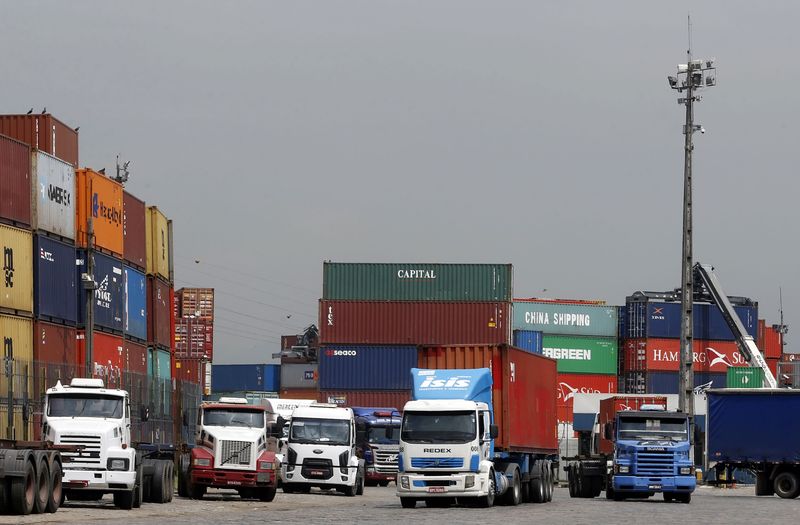
China’s exports grew much more than expected in April, indicating that a bitter trade war with the U.S. was having only a limited impact on export volumes, although the country’s trade balance shrank more than expected.
China’s imports also shrank less than expected, signaling that local demand was so far facing limited headwinds from Beijing’s 125% tariffs on U.S. goods.
Exports grew 8.1% year-on-year in April, government data showed on Friday. The reading was much higher than expectations of 1.9%, but slowed from the 12.4% jump seen in the prior month.
This brought China’s trade balance down to $96.18 bln from $102.64 billion the prior month. The figure was also lower than expectations of $97 billion.
Friday’s strong export reading indicated that a bitter trade war with the U.S. so far had a limited impact on Beijing’s export volumes. The reading also came as Beijing rolled out more measures to support exports, most notably a sharp devaluation of the yuan through April.
But a contraction in China’s trade balance signaled that monetary returns from its exports were slowing, with exporters either shouldering some of the burden of the U.S. tariffs, or sending their goods elsewhere at discounted rates.
China’s imports also slowed substantially less than expected, pointing to some resilience in local demand for overseas goods, despite steep Chinese trade tariffs on U.S. goods. China imposed a 125% tariff on U.S. imports, in retaliation for a 145% tariff levied by President Donald Trump in April.
While Friday’s data does reflect some resilience in Chinese trade, exports also likely remained underpinned by the U.S. exempting several key items from Trump’s tariffs, such as electronics. China has also exempted several goods from its retaliatory tariffs.
Friday’s trade data comes with trade talks between U.S. and Chinese officials set to begin over the weekend. Trump on Thursday said he was open to slashing his tariffs on China if the talks went well, with a report suggesting he could bring the duty down to 50%.
Chinese Vice Minister of Foreign Affairs Chunying Hua said on Friday that the U.S. tariffs were unsustainable and the country was prepared for any outcome from the trade talks.
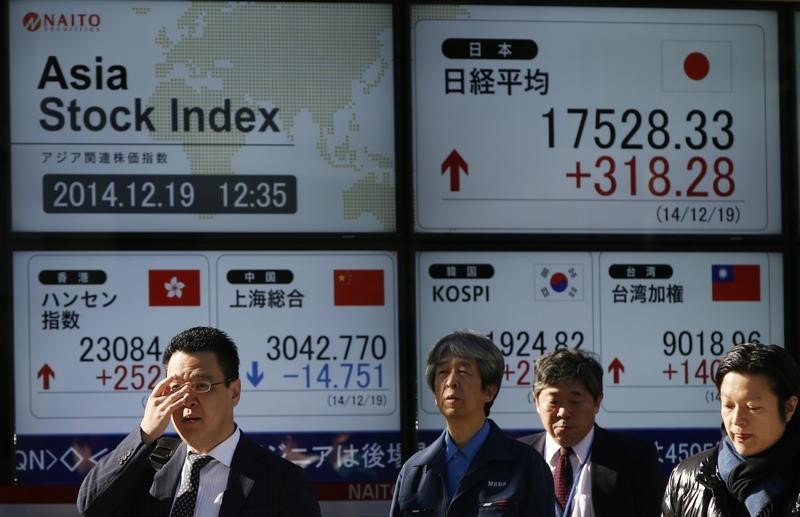
Most Asian stock markets climbed on Friday, led by Japan, as a new U.S.-UK trade deal framework sparked hopes for tariff negotiations with other countries, especially China.
Investors also assessed China’s monthly trade balance data to assess the impact of hefty U.S. tariffs.
Moreover, regional markets took cues from major Wall Street indexes, which gained overnight on trade deal optimism.
U.S. stock index futures were largely muted in Asian trading on Friday.
Nikkei jumps over 1% as US-UK trade deal stokes broader optimism
President Donald Trump on Thursday signed a framework for a trade deal with the United Kingdom, under which the 10% tariff imposed on goods imported from the UK remains in place, while the UK agreed to lower its tariffs to 1.8% from 5.1%. Moreover, steel and aluminum imports to the U.S. would be exempt from Trump’s 25% levy.
Trump also said he expects substantive negotiations between the U.S. and China. Officials from both counties were set to meet over the weekend for trade talks.
Soon after the announcement, Commerce Secretary Howard Lutnick said in media interviews that the U.S. plans dozens of trade deals soon but will likely keep a universal 10% tariff.
Most Asian stocks cheered these signs of easing global trade tensions.
Japan’s Nikkei 225 index jumped 1.5%, while TOPIX advanced 1.3%. A weaker yen against the dollar also provided support.
South Korea’s KOSPI was largely unchanged, while the Philippines’ PSEi Composite index jumped 1%.
Australia’s S&P/ASX 200 rose 0.5%, and Singapore’s Straits Times index added 0.6%.
India’s Nifty 50 Futures edged 0.2% higher amid escalating geopolitical tensions with neighboring Pakistan.
India said it neutralized Pakistani drone and missile attacks on military sites, including Jammu, Pathankot, and Udhampur on Thursday night, calling it an escalation in tensions.
China shares edge lower despite resilient trade balance data
China’s Shanghai Composite index fell 0.3%, while the Shanghai Shenzhen CSI 300 declined 0.4%.
Hong Kong’s Hang Seng index also lost 0.4%.
Data on Friday showed that the Chinese trade balance grew slightly below expectations in April.
Exports fell to 8.1% from 12.4% a month ago, but were sharply above forecasts of a 1.9% rise.
Meanwhile, the decline in imports narrowed to 0.2%, from 4.3%, and beat analysts’ estimates of a 5.9% slump.
The data showed resilient domestic demand and foreign demand despite tariff headwinds. The figures were also likely supported by mutual tariff exemptions on key goods like electronics.
Investors now await the country’s consumer price index (CPI) inflation data, scheduled for release on Saturday.

